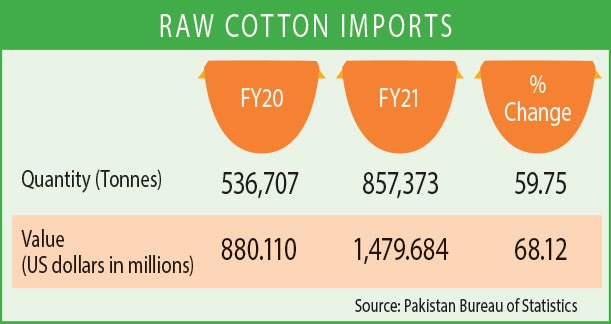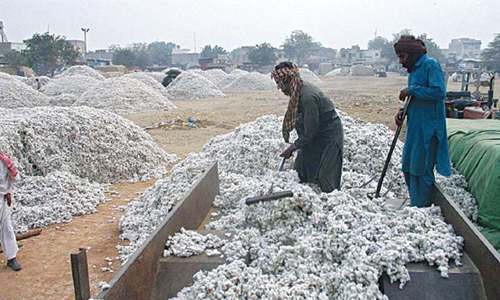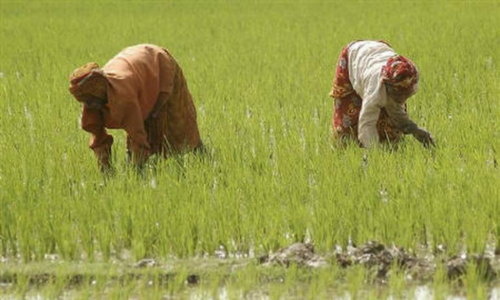
LAHORE: Cotton prices are touching new highs in the local market amid a fall in local production, delay in cotton shipments from abroad and rising dollar-rupee disparity.
The Karachi Cotton Association quoted Rs13,580 per maund as the spot rate for the white lint, while the seed cotton rates prevailed between Rs5,200 and Rs6,200 per maund on Wednesday.
The ex-gin price in Karachi was Rs8,550 per maund and seed cotton rates hovered between Rs4,000 and Rs4,500 per maund a year ago. The average seed cotton price during 2020-21 remained Rs5,016 per maund.
Karachi Cotton Brokers Forum chairperson Naseem Usman says these are the highest rates since 2010-11 when the prices had crossed the Rs14,000 per maund mark.
Karachi Cotton Brokers Forum claims rates are the highest since 2010-11
Production loss due to declining cotton acreage and yield, an unexpected shortage in the local market because of delays in import delivery, rising freight charges, negative crop outlook reports from neighbouring countries, mounting dollar-rupee disparity are being considered major factors behind the bullish trend in the local cotton market. And this trend will not relent in the near future, it is believed.
A textile miller, who requested not to be named, says the local industry is in hot water these days for unlike in the past, cotton price in the international market has become almost equal to the ‘costlier’ local one.
“We have purchased almost 11 million bales of cotton from abroad but the shipment is facing delays mainly due to Covid-19 restrictions. The delay is impacting the local market as we have to meet our requirements from the domestic sources until the arrival of the imported raw material.”
He says they are forced to make local purchases to keep their units running but the domestic cotton is short in staple and poor in quality for being contaminated.
The ginning industry prophesies further doom. Muhammad Junaid Iqbal, a ginner from Rahim Yar Khan district, says seed cotton rate in Punjab markets is being quoted up to Rs6,200 per maund these days, and fears it may go up to Rs7,000 if shipments from abroad are further delayed.
Referring to crop reports emanating from neighbouring cotton producing countries, he says heavy monsoon has damaged between 20 and 25 per cent of the crop in India, whereas it is also suffering from harsh weather in China. This will add stress to the local market.
Mr Usman from the Karachi Cotton Brokers Forum says continuing rupee slide against dollar and increasing freight charges are making imported cotton expensive, thus the textile millers are turning to local purchases because uncertainty rules both the dollar rate and arrival of shipments because of coronavirus-related hurdles across the world.
Pakistan harvested 5.6 million cotton bales last season, the lowest in the 30 years, while the textile industry needs at least 15 million bales. It will have to import around nine million bales to meet the shortfall.
Published in Dawn, August 12th, 2021













































